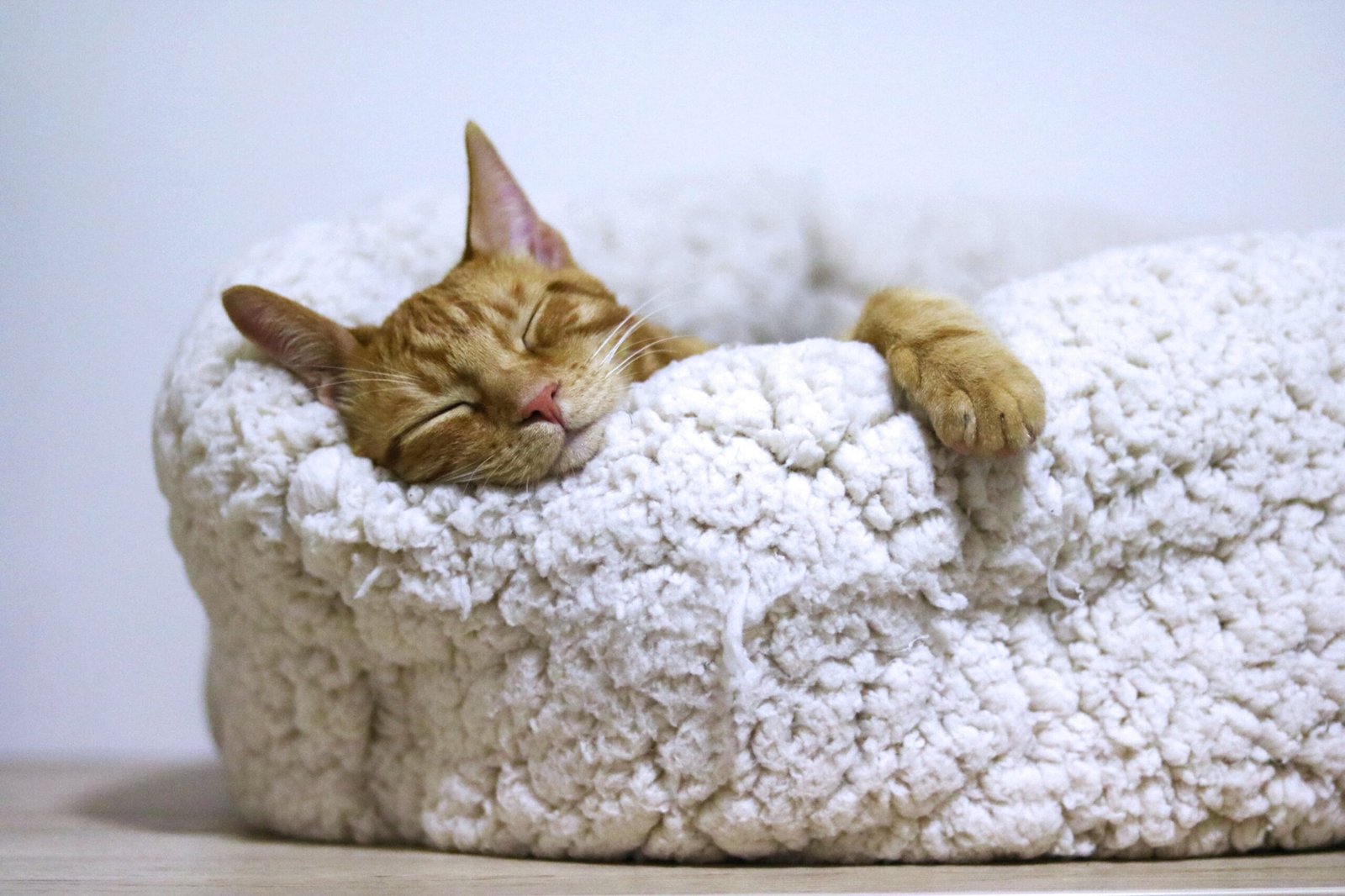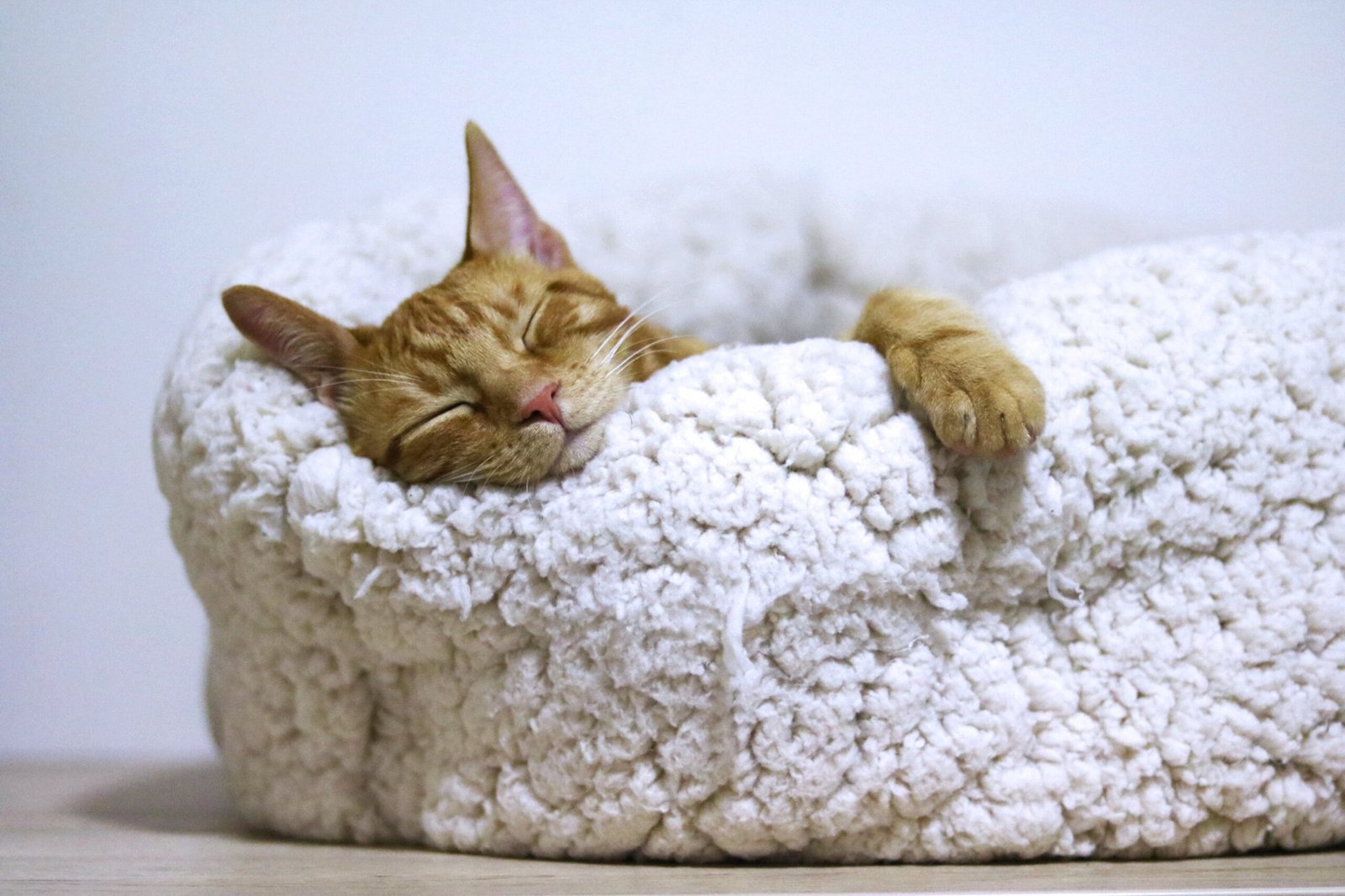
If you’ve been struggling with getting a good night’s sleep, this article is here to help you out. We all know how important sleep is for our overall well-being, and yet many of us find ourselves tossing and turning night after night. In this article, you’ll discover some practical tips and strategies to improve your sleep schedule. From creating a bedtime routine to creating a sleep-friendly environment, we’ve got you covered. So say goodbye to restless nights and hello to a rejuvenating slumber. It’s time to prioritize your sleep and reap the benefits of a well-rested mind and body.
Understanding the Importance of a Consistent Sleep Schedule

Why is a consistent sleep schedule important?
Having a consistent sleep schedule is essential for maintaining overall health and well-being. When you consistently go to bed and wake up at the same time every day, you help regulate your body’s internal clock, also known as the circadian rhythm. This internal clock controls various biological processes, including when you feel sleepy or alert.
By following a consistent sleep schedule, you train your body to know when it’s time to sleep and when it’s time to wake up. This can lead to improved sleep quality, as your body becomes accustomed to a regular sleep pattern. It also helps ensure that you get enough sleep each night, which is essential for optimal cognitive function, emotional well-being, and physical health.
The effects of an inconsistent sleep schedule
On the other hand, an inconsistent sleep schedule can have detrimental effects on your health and daily functioning. When you constantly change your bedtime and wake-up time, you disrupt your body’s natural sleep-wake cycle. This can lead to difficulties falling asleep, staying asleep, and feeling refreshed upon waking.
Inconsistent sleep patterns can negatively impact your energy levels, mood, and cognitive performance throughout the day. It can make it harder to concentrate, affect memory retention, and even contribute to mood disorders such as anxiety and depression. Additionally, an irregular sleep schedule can weaken your immune system, impair your ability to regulate appetite and weight, and increase the risk of developing chronic conditions like diabetes and heart disease.
The benefits of a consistent sleep schedule
Establishing a consistent sleep schedule offers numerous benefits for your physical and mental well-being. When you stick to a regular bedtime and wake-up time, you promote better sleep quality, allowing your body to complete its sleep cycles and recharge for the next day.
Consistent sleep patterns can also enhance your overall mood and reduce the risk of mental health issues. They provide stability and predictability, helping you feel more balanced and in control of your daily life. Moreover, maintaining a consistent sleep schedule can improve your cognitive abilities, including focus, attention, and decision-making skills, which are crucial for success both at work and in your personal life.
Furthermore, a consistent sleep schedule supports your body’s natural processes, such as hormone regulation and repair of tissues and muscles. It can boost your immune system, increase your energy levels, and contribute to a healthier metabolism. Overall, prioritizing a regular sleep routine is an investment in your overall health and long-term well-being.
Establishing a Regular Bedtime Routine
Creating a relaxing pre-sleep routine
To ensure a restful night’s sleep, it’s important to establish a relaxing pre-sleep routine. This routine should consist of soothing activities that help your body and mind unwind and prepare for sleep. Consider incorporating activities such as taking a warm bath, reading a book, practicing gentle stretching or yoga, or engaging in a calming hobby like knitting or coloring.
By consistently participating in these relaxing activities before bed, you can signal to your body that it’s time to wind down and prepare for sleep. This can lead to a smoother transition into a restful slumber and improve sleep quality.
Avoiding stimulating activities before bed
While it may be tempting to catch up on work, watch thrilling TV shows, or scroll through social media before bed, these activities can interfere with your ability to fall asleep easily. The blue light emitted by electronic devices can suppress the production of melatonin, a hormone that helps regulate sleep.
To promote better sleep, it’s crucial to avoid stimulating activities close to bedtime. Instead of engaging in activities that increase mental or physical arousal, opt for more calming alternatives. Consider reading a book (preferably in print format), listening to soft music, or practicing relaxation techniques such as deep breathing or meditation.
Setting a fixed bedtime
Setting a fixed bedtime is key to establishing a consistent sleep schedule. By going to bed at the same time every night, you train your body to anticipate sleep and prepare for it accordingly. This regularity reinforces your body’s internal clock, making it easier to fall asleep quickly and wake up feeling refreshed.
When determining your ideal bedtime, consider your individual sleep needs and lifestyle factors. Aim for seven to nine hours of sleep per night, as recommended by experts. Additionally, try to align your bedtime with your natural circadian rhythm by going to bed at a time when you usually feel sleepy. Consistency is key, so it’s important to stick to your chosen bedtime even on weekends and holidays.
Creating a Comfortable Sleep Environment
Choosing a suitable mattress and pillows
A comfortable sleep environment begins with choosing a suitable mattress and pillows. The right mattress should provide adequate support and comfort for your body, allowing for proper spinal alignment and reducing the risk of discomfort or pain. Try different mattress types, such as memory foam, latex, or hybrid mattresses, to find the one that suits your preferences and sleep style best.
In addition to the mattress, pillows play a vital role in sleep comfort. The ideal pillow should support your head and neck, promoting proper alignment and reducing the likelihood of waking up with stiffness or aches. Explore different pillow materials and thicknesses to find the one that offers optimal support for your unique needs.
Maintaining a cool and dark bedroom
Creating a sleep-conducive environment involves maintaining a cool and dark bedroom. Your body temperature naturally drops during sleep, and a slightly cooler room can facilitate this process. Set your thermostat to a temperature between 60 to 67 degrees Fahrenheit (15 to 19 degrees Celsius) to promote better sleep. Consider using breathable bedding materials to regulate body temperature further.
Furthermore, darkness is crucial for quality sleep. Excessive light exposure can interfere with the production of melatonin, the sleep hormone. Use blackout curtains or blinds to block out external light sources effectively. If this is not possible, consider wearing a sleep mask to create a dark environment conducive to sleep.

Reducing noise and distractions
A quiet sleep environment is an essential component of a restful night’s sleep. Excessive noise can disrupt your sleep and prevent you from falling asleep or staying asleep. Identify and eliminate sources of disruptive noise, such as traffic, loud neighbors, or household appliances. Consider using earplugs or a white noise machine to mask unwanted sounds and create a peaceful ambiance.
Moreover, minimizing distractions in the bedroom can help promote a more restful sleep environment. Keep electronic devices such as smartphones, tablets, or laptops out of the bedroom, as they can emit both visual and auditory distractions. Instead, create a serene space that is conducive to relaxation and sleep.
Managing Daytime Habits to Optimize Sleep
Avoiding napping during the day
While napping can be tempting, especially when you’re feeling tired, it can interfere with your ability to fall asleep at night. Short power naps of around 10 to 20 minutes can be beneficial for boosting alertness and productivity. However, longer naps or napping too late in the day can disrupt your sleep schedule.
If you find yourself needing a nap to combat daytime drowsiness, try to keep it short and limit it to the early afternoon. Avoid napping too close to your regular bedtime, as this can make it harder to fall asleep later. By limiting daytime napping, you can ensure that your body’s sleep drive remains strong, promoting a more consistent and restful sleep schedule.
Limiting caffeine and alcohol intake
Consuming caffeine and alcohol in excess, particularly close to bedtime, can negatively affect your sleep. Caffeine is a stimulant found in coffee, tea, energy drinks, and chocolate that can interfere with falling asleep. Alcohol, on the other hand, may initially make you feel drowsy, but it can disrupt the later stages of sleep, leading to poor sleep quality and frequent waking during the night.
To optimize your sleep, limit your caffeine intake, especially in the afternoon and evening. Additionally, be mindful of alcohol consumption and avoid drinking close to bedtime. Consider switching to calming herbal teas or warm milk as evening beverages to promote relaxation and better sleep.
Exercising regularly and at appropriate times
Regular exercise has been shown to improve sleep quality and duration. Engaging in physical activity during the day can help regulate your circadian rhythm, promote a deeper sleep, and reduce symptoms of insomnia. However, the timing of exercise is crucial to ensure it enhances, rather than disrupts, your sleep.
Choose to exercise earlier in the day or in the early evening, avoiding intense physical activity close to bedtime. Vigorous exercise can increase alertness and raise your core body temperature, making it harder to fall asleep. Aim for at least 30 minutes of moderate-intensity exercise most days of the week to reap the sleep-enhancing benefits.
Managing Electronic Devices and Blue Light Exposure
Avoiding electronic devices before bed
Electronic devices, such as smartphones, tablets, and computers, emit blue light that can interfere with your sleep. Blue light suppresses the production of melatonin, the hormone responsible for regulating your sleep-wake cycle. Exposure to blue light before bed can make it harder to fall asleep and reduce the quality of your sleep.
To optimize your sleep, it’s crucial to avoid using electronic devices at least one hour before bed. Instead, engage in relaxing activities, such as reading a book or listening to calming music. If you must use electronic devices, consider adjusting the settings to activate the “night mode” or use applications that filter out blue light.
Using blue light filters or glasses
If you find it challenging to limit your exposure to electronic devices in the evening, consider using blue light filters or glasses. Blue light filters are available as applications or software that can be installed on smartphones, computers, and tablets. These filters reduce the amount of blue light emitted by the screen, making it less disruptive to your circadian rhythm.
Alternatively, blue light-blocking glasses can be worn in the evening to counteract the effects of blue light on your sleep. These glasses have lenses that filter out the blue light, allowing your body to naturally produce melatonin and promoting better sleep quality. Incorporating these measures can help mitigate the negative impact of blue light on your sleep schedule.
Creating device-free zones in the bedroom
To further reduce the temptation of reaching for your electronic devices before bed, consider creating device-free zones in your bedroom. Designate areas where electronic devices are not allowed, such as your bedside table or the area surrounding your bed. This can help separate your sleep environment from the distractions and stimulation associated with technology.
By eliminating electronic devices from your immediate sleeping area, you can create a more peaceful and conducive environment for sleep. Charging your devices outside of the bedroom or using an alarm clock instead of relying on your phone’s alarm can further enhance the effectiveness of this device-free zone.
Addressing Stress and Anxiety
Implementing stress-reduction techniques
Stress and anxiety can significantly impact your ability to fall asleep and maintain a consistent sleep schedule. It’s essential to prioritize stress reduction and implement effective techniques to manage these emotions. Consider incorporating stress-reducing activities into your daily routine, such as practicing mindfulness, deep breathing exercises, or engaging in activities that bring joy and relaxation.
Finding healthy outlets for stress, such as hobbies, exercise, or spending time in nature, can help alleviate anxiety and promote a calm state of mind before bed. Experiment with different techniques to find what works best for you and incorporate them into your bedtime routine to create a more tranquil and sleep-conducive atmosphere.

Practicing mindfulness and relaxation exercises
Mindfulness and relaxation exercises can be powerful tools in improving sleep quality and managing stress. By practicing mindfulness, you cultivate present-moment awareness, allowing your mind to let go of racing thoughts and worries that can keep you awake at night. Techniques such as meditation, progressive muscle relaxation, or guided imagery can help induce a state of relaxation and prepare your mind for restful sleep.
Consider setting aside dedicated time each day to engage in mindfulness and relaxation exercises. This can be done before bed or at any other time that works for you. With consistent practice, these techniques can train your brain to enter a peaceful state more easily, promoting a better sleep schedule.
Seeking professional help if needed
If stress and anxiety persist despite your best efforts, it may be beneficial to seek professional help. A mental health professional, such as a therapist or counselor, can help you develop effective coping strategies and provide support for managing stress and anxiety. They can also address any underlying issues that may be contributing to your sleep difficulties.
Don’t hesitate to reach out to a healthcare professional if you feel overwhelmed or unable to manage stress and anxiety on your own. They can help identify the root causes of your sleep-related concerns and tailor treatment options to suit your specific needs, ultimately supporting the establishment of a consistent sleep schedule.
Considering Dietary and Lifestyle Factors
Evaluating the impact of diet on sleep quality
Your diet can significantly influence your sleep quality. Certain foods and beverages can either promote or hinder a good night’s rest. Understanding the impact of your dietary choices can help you optimize your sleep schedule.
Consuming a well-balanced diet that includes nutrient-rich foods, such as whole grains, lean proteins, fruits, and vegetables, can support healthy sleep. These foods provide essential vitamins and minerals that promote relaxation and help regulate sleep-wake cycles.
On the other hand, consuming large, heavy meals close to bedtime can cause discomfort and make it harder to fall asleep. Spicy and acidic foods may also contribute to indigestion or acid reflux, leading to disrupted sleep. It’s best to avoid consuming heavy meals and foods that trigger digestive issues within two to three hours of bedtime.
Avoiding heavy meals close to bedtime
As mentioned earlier, it’s important to avoid heavy meals close to bedtime to promote better sleep. Eating a large meal right before bed can increase the likelihood of experiencing discomfort, heartburn, or indigestion, which can disrupt your ability to fall asleep and maintain a consistent sleep schedule.
To prevent sleep disturbances caused by indigestion, aim to finish your last meal of the day at least two hours before bedtime. If you find yourself hungry closer to bedtime, opt for a light snack that combines complex carbohydrates and a small amount of protein. This can help curb hunger without overstimulating your digestive system.
Regulating hydration and fluid intake
Hydration plays a crucial role in maintaining overall health, including sleep quality. Adequate fluid intake throughout the day supports proper bodily functions and can contribute to a more restful sleep. However, it’s essential to strike a balance between staying hydrated and avoiding excessive fluid intake close to bedtime.
Drinking too many fluids late in the evening can lead to frequent trips to the bathroom during the night, disrupting your sleep and making it harder to maintain a consistent sleep schedule. To optimize your sleep, aim to hydrate throughout the day, while gradually reducing your fluid intake in the hours leading up to bedtime. This way, you can reduce the likelihood of sleep disruptions caused by nighttime urination.
Exploring Natural Remedies for Better Sleep
Trying herbal teas and supplements
Herbal teas and supplements can offer natural remedies to enhance sleep quality. Some herbs, such as chamomile, valerian root, and lavender, have calming properties that can promote relaxation and induce sleepiness. Drinking a warm cup of herbal tea before bed can be a soothing ritual that signals to your body that it’s time to unwind and prepare for sleep.
In addition to herbal teas, certain supplements, such as melatonin or magnesium, may support better sleep. However, it’s important to consult with a healthcare professional before incorporating any new supplements into your routine to ensure their safety and effectiveness.
Using essential oils and aromatherapy
Essential oils and aromatherapy can be powerful tools to enhance sleep quality and create a serene sleep environment. Essential oils such as lavender, chamomile, and bergamot have calming properties that can help reduce anxiety, promote relaxation, and facilitate better sleep.
Consider using a diffuser to disperse these soothing aromas into your bedroom before bedtime. Alternatively, massage a few drops of diluted essential oils onto your temples or wrists for a calming effect. Experiment with different scents and methods to find what works best for you and incorporate aromatherapy into your bedtime routine for a more restful sleep experience.
Considering alternative therapies such as acupuncture or yoga
Alternative therapies like acupuncture or yoga can offer holistic approaches to improving sleep quality and establishing a consistent sleep schedule. Acupuncture, an ancient Chinese practice, involves the insertion of thin needles into specific points on the body. It has been shown to promote relaxation, reduce stress, and enhance sleep.
Yoga, on the other hand, combines physical postures, breathing exercises, and meditation to promote overall well-being, including better sleep. Regular practice of yoga can help alleviate muscle tension, promote relaxation, and calm the mind before bed.
If interested in exploring these alternative therapies, consult with qualified practitioners who specialize in acupuncture or yoga. They can provide personalized recommendations and guidance based on your specific needs and goals.
Seeking Professional Help for Sleep Disorders
Identifying common sleep disorders
Sleep disorders can significantly impact your ability to maintain a consistent sleep schedule and get the restful sleep you need. It’s important to be aware of common sleep disorders and their symptoms to identify when professional help may be necessary. Some common sleep disorders include:
- Insomnia: Difficulty falling asleep, staying asleep, or both.
- Sleep apnea: Interruptions in breathing during sleep, leading to fragmented sleep and excessive daytime sleepiness.
- Restless legs syndrome (RLS): Uncomfortable sensations in the legs, often accompanied by an irresistible urge to move them, which can disrupt sleep.
- Narcolepsy: Excessive daytime sleepiness, sudden and uncontrollable sleep attacks, and disrupted nighttime sleep.
- Circadian rhythm disorders: Disruptions in the body’s natural sleep-wake cycle, leading to difficulty falling asleep at the desired time.
Consulting with a sleep specialist
If you suspect that you may have a sleep disorder or if your sleep difficulties persist despite implementing healthy sleep habits, it’s advisable to consult with a sleep specialist. Sleep specialists are medical professionals with expertise in diagnosing and treating various sleep disorders.
During a consultation, a sleep specialist will evaluate your symptoms, conduct a thorough medical history review, and may recommend a sleep study or other diagnostic tests to gather more information about your sleep patterns. They will then provide personalized recommendations and treatment options based on your specific needs, helping you establish a consistent sleep schedule and manage any underlying sleep disorders.
Exploring available treatment options
After receiving a diagnosis from a sleep specialist, you can explore the available treatment options for your specific sleep disorder. Treatment approaches will vary depending on the diagnosis and may include:
- Cognitive-behavioral therapy for insomnia (CBT-I): A structured program that helps address the underlying causes of insomnia and promotes healthier sleep habits.
- Continuous positive airway pressure (CPAP) therapy: A treatment for sleep apnea that involves wearing a mask connected to a machine that delivers a steady flow of air, keeping the airway open during sleep.
- Medications: In some cases, sleep disorders may be treated with prescription medications, such as sedatives or medications to regulate brain chemicals involved in sleep.
- Lifestyle modifications: Certain lifestyle changes, such as weight loss, avoiding sleep position triggers (in the case of sleep apnea), or adjusting sleep habits, may be recommended to address specific sleep disorders.
Working closely with your sleep specialist and following their recommended treatment plan can significantly improve your sleep schedule and overall well-being.
Maintaining Consistency and Tracking Progress
Establishing a sleep diary or tracker
Maintaining a sleep diary or using a sleep tracker can be a valuable tool in establishing a consistent sleep schedule and tracking your progress over time. A sleep diary allows you to record important information about your sleep patterns, such as your bedtime, wake-up time, and any factors that may have influenced your sleep quality.
Tracking your sleep duration, quality, and other relevant factors, such as caffeine consumption or exercise habits, can provide insights into patterns and trends that may affect your sleep. This information can help you identify areas for improvement and make necessary adjustments to optimize your sleep schedule.
Identifying patterns and adjusting accordingly
Regularly reviewing your sleep diary or tracker can help you identify patterns and trends that may be affecting your sleep quality and consistency. Look for recurring factors that positively or negatively influence your sleep, such as certain activities before bed, environmental conditions, or lifestyle habits.
Once you identify patterns, you can make informed adjustments to your sleep routine to address any discrepancies or areas of improvement. This may involve modifying bedtime routines, adjusting sleep and wake times, or making changes to your sleep environment. By consistently monitoring your sleep habits and making adjustments as needed, you can maintain a healthy sleep schedule.
Staying committed to a healthy sleep schedule
Establishing a consistent sleep schedule requires commitment and perseverance. It may take time for your body to adjust to a new routine, and setbacks can happen. However, staying committed to your sleep schedule is crucial for reaping the long-term benefits of healthy and restful sleep.
Maintain a positive mindset and remind yourself of the importance of a consistent sleep schedule for your overall well-being. Practice self-compassion and patience during the adjustment phase, knowing that consistency and persistence will lead to better sleep habits and improved sleep quality over time.
In conclusion, understanding the importance of a consistent sleep schedule is the first step towards prioritizing your sleep and improving your overall health and well-being. By establishing a regular bedtime routine, creating a comfortable sleep environment, managing daytime habits, addressing blue light exposure and stress, considering dietary and lifestyle factors, exploring natural remedies, seeking professional help when needed, and tracking your progress, you can maintain a consistent sleep schedule and enjoy the many benefits of a good night’s sleep. Remember, consistency is key, so stay committed to your healthy sleep habits and prioritize your sleep for a happier, healthier you. Sleep well!





